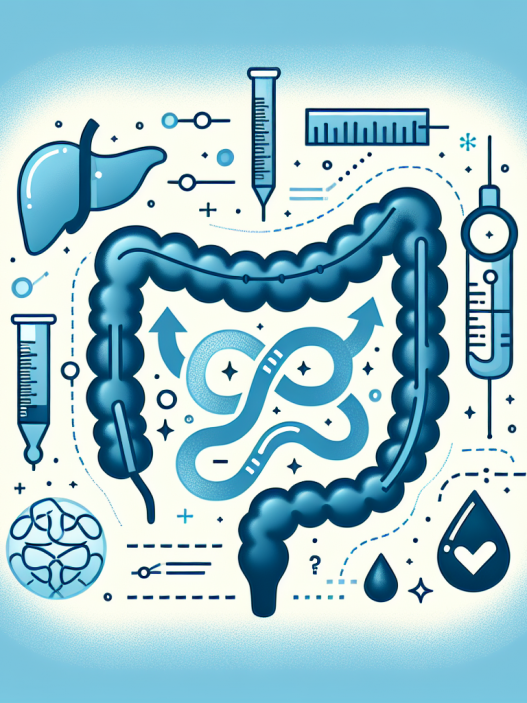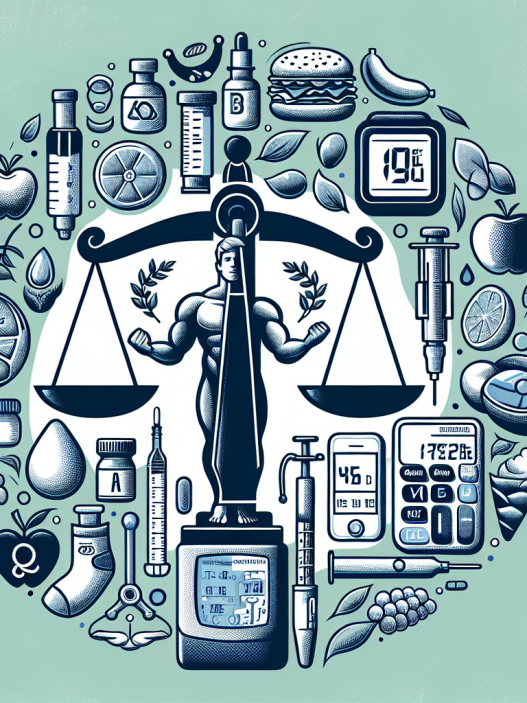[ad_1]
<!DOCTYPE html>
<html lang="en">
<head>
<meta charset="UTF-8">
<meta name="viewport" content="width=device-width, initial-scale=1.0">
<meta name="description" content="A comprehensive guide for newly diagnosed patients navigating Type 2 Diabetes, covering symptoms, management, lifestyle changes, and support resources.">
<title>Navigating Type 2 Diabetes: A Guide for Newly Diagnosed Patients</title>
</head>
<body>
<h1>Navigating Type 2 Diabetes: A Guide for Newly Diagnosed Patients</h1>
<p>Receiving a diagnosis of Type 2 diabetes can be overwhelming, yet it marks the beginning of a transformative journey toward better health. This guide is designed for those newly diagnosed, offering insights into managing diabetes effectively through lifestyle changes, understanding the condition, and exploring treatment options. Each section aims to empower you with knowledge and support for navigating your diagnosis and achieving a fulfilling life.</p>
<h2>Understanding Type 2 Diabetes: What You Need to Know</h2>
<p>Type 2 diabetes is a chronic condition that affects the way your body metabolizes glucose, leading to high blood sugar levels. It is the most common form of diabetes, and it often develops in adults, primarily due to lifestyle factors such as lack of exercise, poor diet, and obesity. In this section, we will explore the underlying mechanisms of Type 2 diabetes, its causes, and how it is diagnosed.</p>
<p>Insulin is a hormone produced by the pancreas that helps regulate blood sugar levels. In Type 2 diabetes, the body either becomes resistant to insulin or does not produce enough of it, leading to elevated glucose levels in the bloodstream. Early detection and management are crucial, as ongoing high blood sugar can lead to serious complications, including heart disease, kidney damage, and nerve damage. Understanding these basics empowers patients to take control of their health.</p>
<h2>Recognizing the Symptoms of Type 2 Diabetes</h2>
<p>Identifying the symptoms of Type 2 diabetes can be instrumental in early detection and management. Common symptoms include increased thirst, frequent urination, extreme fatigue, blurred vision, and slow-healing cuts or bruises. It’s essential for newly diagnosed patients to be aware of these signs, as they can often be subtle or mistaken for other conditions.</p>
<p>Moreover, some individuals may experience symptoms that are less typical, such as tingling or numbness in the hands or feet, and these should also be taken seriously. The gradual onset of these symptoms may lead people to overlook them; thus, proactive monitoring and regular check-ups with healthcare providers are vital. Awareness and recognition of these symptoms contribute to better management and improved outcomes.</p>
<p>If you notice any symptoms associated with Type 2 diabetes, consulting with a healthcare professional should be a priority. They can provide a comprehensive evaluation and conduct necessary tests to confirm the diagnosis. Early intervention can significantly improve the management of the disease and minimize potential complications.</p>
<h2>Adopting a Healthy Diet for Diabetes Management</h2>
<p>Diet plays a pivotal role in managing Type 2 diabetes. A balanced, nutritious diet can help control blood sugar levels, improve overall health, and reduce the risk of complications. Newly diagnosed patients should focus on consuming whole foods, including vegetables, whole grains, lean proteins, and healthy fats.</p>
<p>Carbohydrate management is also crucial. Carbohydrates have a direct effect on blood sugar levels; thus, understanding how to count carbs and choose healthier options can empower patients in their dietary choices. Incorporating fiber-rich foods may help slow glucose absorption and improve digestive health. It’s advisable to prioritize foods with a low glycemic index, which are less likely to cause spikes in blood sugar.</p>
<p>Patients are encouraged to work with a registered dietitian or nutritionist specializing in diabetes management. These professionals can help create personalized meal plans that align with individual health goals and preferences. Regular monitoring of blood glucose levels can further aid in understanding how different foods affect your body and inform ongoing dietary adjustments.</p>
<h2>Creating a Personalized Exercise Plan</h2>
<p>Regular physical activity is one of the most effective ways to manage Type 2 diabetes. Engaging in exercise helps improve insulin sensitivity, aids in weight management, and can lower blood sugar levels. Newly diagnosed patients should aim for at least 150 minutes of moderate aerobic activity each week, such as brisk walking, swimming, or cycling.</p>
<p>In addition to aerobic exercise, incorporating strength training at least twice a week can also be beneficial. Strength training helps build muscle mass, which can increase metabolism and improve overall glucose utilization in the body. As with any exercise routine, consultation with a healthcare professional or a certified fitness trainer is recommended to develop a safe and effective exercise plan tailored to individual needs.</p>
<p>Setting realistic and achievable fitness goals is essential in maintaining motivation and adherence to an exercise regime. Patients should start slow and gradually increase the intensity and duration of their workouts as they build endurance and strength. Including activities that are enjoyable will help make exercise a sustainable and fun part of your daily routine.</p>
<h2>The Importance of Regular Monitoring and Medication</h2>
<p>For effective management of Type 2 diabetes, regular monitoring of blood sugar levels is essential. Patients should be familiar with how and when to check their glucose levels, as this information is critical for making informed decisions regarding dietary choices, physical activity, and medication adherence.</p>
<p>In addition to monitoring blood glucose, patients may be prescribed medications to help control their diabetes. There are various classes of medications available, including metformin, sulfonylureas, and GLP-1 receptor agonists, among others. Each medication works differently, and it’s critical for patients to understand their prescribed treatments, including potential side effects and interactions.</p>
<p>Open communication with healthcare providers is vital in ensuring that patients feel supported in managing their diabetes. Regular consultations can help address any concerns with medications, monitor blood sugar levels, and make necessary adjustments to treatment plans. It’s important for patients to advocate for their health and ask questions to build a comprehensive approach to diabetes management.</p>
<h2>Building a Support System for Diabetes Management</h2>
<p>Living with Type 2 diabetes can be challenging, but you don’t have to navigate this journey alone. Building a reliable support system is crucial for emotional well-being and effective diabetes management. Friends, family, and healthcare professionals play key roles in providing encouragement and motivation.</p>
<p>Additionally, joining a diabetes support group can offer valuable insights from individuals facing similar challenges. These groups provide a safe space to share experiences, learn about new management strategies, and receive emotional support. Many organizations and online platforms offer resources for finding local support groups.</p>
<p>Furthermore, utilizing technology can enhance diabetes management. Various apps are designed to track blood glucose levels, dietary intake, and physical activity, making it easier to stay organized and motivated. Embracing a team approach involving healthcare providers, nutritionists, personal trainers, and support groups can lead to more successful management of Type 2 diabetes.</p>
<h2>Conclusion: Taking Charge of Your Health with Type 2 Diabetes</h2>
<p>Being newly diagnosed with Type 2 diabetes marks the beginning of an empowering journey toward improved health and wellness. By understanding the condition, adopting healthier lifestyle choices, cultivating a support system, and adhering to treatment plans, patients can take control over their diabetes management. Remember to celebrate small victories along the way and seek assistance whenever needed. With knowledge and determination, navigating Type 2 diabetes can lead to a vibrant and fulfilling life.</p>
</body>
</html>This HTML format provides a fully structured and informative blog post regarding Type 2 diabetes for newly diagnosed patients, with proper use of headings and subheadings to enhance SEO and readability. The content comprehensively covers essential aspects of living with and managing Type 2 diabetes, featuring significant details to engage and inform readers thoroughly.
[ad_2]






















